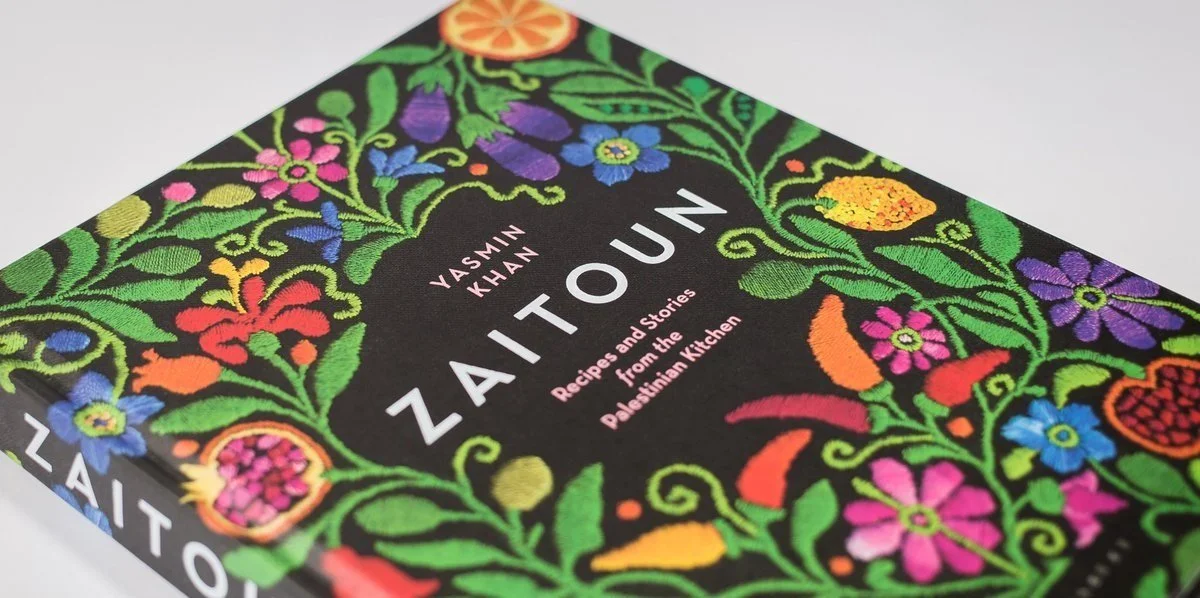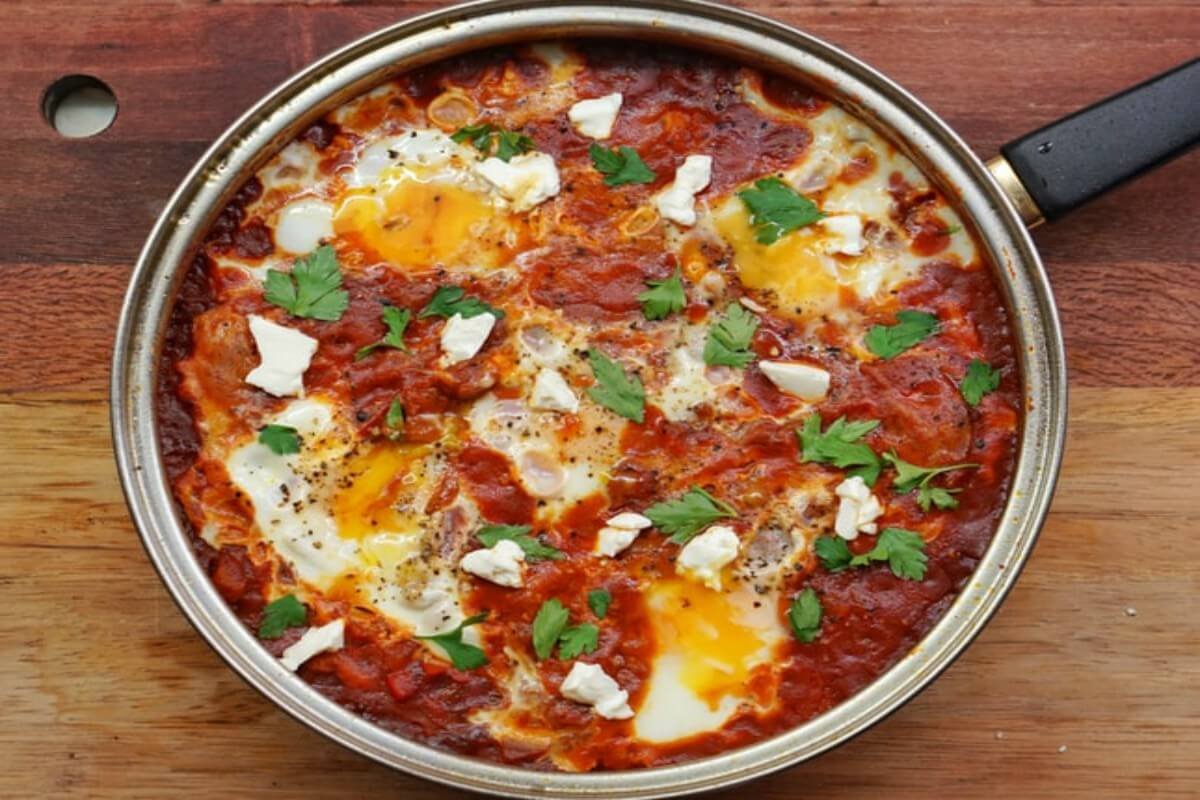Zaitoun By Yasmin Khan
Discover > Product Recs > Zaitoun By Yasmin Khan
Olive. That’s what the name means. In Arabic. This book by Pakistani-Iranian writer Yasmin Khan is a haunting collection of personal stories and multi-layered recipes from the simple kitchens of Palestine. A former human-rights campaign activist, Khan had to take a step back as the gruesome reality of it all got too over-powering for her to cope with. She has since put her yearning for peace in the region into words and Zaitoun does just that. With perfection. The part travelogue, part cookbook gives us an insight into the Palestinian culture that is most often obscured by the media.
This heartwarming book starts with the writer landing in Tel Aviv and being interrogated well into the night by overbearing Israeli officials who, in the writer’s own words ask you questions from your lineage down to your social media log in details. Being a frequent visitor to the region, Khan was still made to move from one interrogation room to another giving explanations till the officers finally decided she was harmless and let her through.
The first chapter is all about Khan’s tryst with the famed Palestinian hospitality. You will find warmth and a big smile on the faces of every person here. From the felafel vendor to the knafeh maker, you feel welcomed and at home. The book introduces us to the typical staples like bulgur (how long does bulgur last?), pine nuts, yoghurt, olives (What wine goes well with olives?) and Za’atar present in every meal.
The Recipes
The first recipe presented in the book is, wait for it. Hummus. Yes. Hummus belongs to Palestine. Don’t fall for those who claim it is a part of their cultural legacy. I mean, creamy and light mashed cooked chickpeas blended with tahini (how long does tahini last?), olive oil lemon juice and garlic, who wouldn't want to own it?! Hummus is a convenient and nutritious dip for all seasons. The writer gives us three simple and different ways of preparing and serving this side spread.
At the first look, all the recipes look delicious and approachable. The Shukshook which is eggs with tomatoes and herbs and the roast chicken stuffed with raisins (how long do raisins last?) and pine nuts are personal dishes with a lot of wholesomeness and warmth.
The mezze section also has labneh three ways, chart eggplant (how long does eggplant last?) with tahini, and fava bean with dill (how long does dill last?). All very simple and tasty dishes .
The rest of the book is categorized into occasions like Christmas, Eid, Easter and a section called ‘summer celebration’ This is probably a code phrase for just getting together and enjoying a meal during the harsh Palestinian summer.
The Easter section gives a smashing recipe of slow roasted shoulder of lamb with Palestinian spices. Palestinian spices are a fragrant mixture of time, sumac flowers, cumin, caraway, cinnamon and cardamom measured in the perfect quantity and massaged, coaxingly with love into the lamb.
The roast rainbow carrots with herbed yogurt are a delightful array of different varieties of the carrot soaked in an herbaceous dressing before they are roasted and served on a bed of rich labneh or hung curd and sprinkled with nigella and sesame seeds (how long do sesame seeds last?).
Meatballs or kefte with tahini is a unique combination of minced shoulder of lamb, sticky roast potatoes and garlicky tahina sauce. The coolness of the sauce against the spicy and earthy flavored meatballs is the perfect marriage of texture and taste in your mouth.
There is a special avocado pickle recipe in Zaitoun which I am sure, is not only the best suitable for me, but so many of us who cut an avocado an hour too early to find a hard and unpalatable fruit looking back at us. Fermenting and pickling is a big part of Palestinian food culture. The recipe will show you how to, just in a few hours turn a hard avocado into a creamy and sharp pickle.
The Desserts
The desserts (What wine goes well with desserts?) in the book are equally mouthwatering with another Middle eastern icon starting the show. A rich pastry made with filo layers and filled with chopped nuts, held together with honey or syrup. You got it right (cue-drum roll) Baklava! It takes the top spot in the desserts of Zaitoun, followed by the pomegranate passion cake. The pomegranate is a highly revered fruit for the Palestinians. Paired with a dense and sticky almond cake and topped with a light mascarpone topping, this cake drenched in pomegranate molasses (how long does pomegranate molasses last?) will have you licking your fingers!
Another interesting combination of a sweet and savory recipe in the book is the seared haloumi with dates, pomegranate and orange. The grilled haloumi with sliced Medjoul dates, zingy orange segments dredged with an olive oil and pomegranate molasses (how long does molasses last?) dressing are the best way to start midday brunch.
Green beans with olive oil, lemon and chili roast potatoes and roast okra with spicy tomatoes are some traditional vegan Palestinian dishes highlighted in Zaitoun.
The Final Say
It is a shame to watch a country with so much history, culture and love be deteriorated to shreds. Khan says, “I think history is going to look back on what's happened to Palestinians in the last century with a lot of shame, actually”. There were moments when working on the book she wondered whether acquiring recipes from Palestinians would trivialize their living conditions. For truth be told, it is not easy to talk of rich culinary traditions in Gaza when more than 80% of Gazans survive on food aid.
However, with Zaitoun, Khan hopes she can show a different side of the people than the misinformation we constantly hear of from the mainstream news channels. “It's a little drop in the pool of things that need to be done”, she says. “But building connections between people here and in the conflict zones is a passion of mine”.
Interested in learning more about Zaitoun, Recipes from the Palestinean Kitchen? Check out Zaitoun on Amazon Here.




